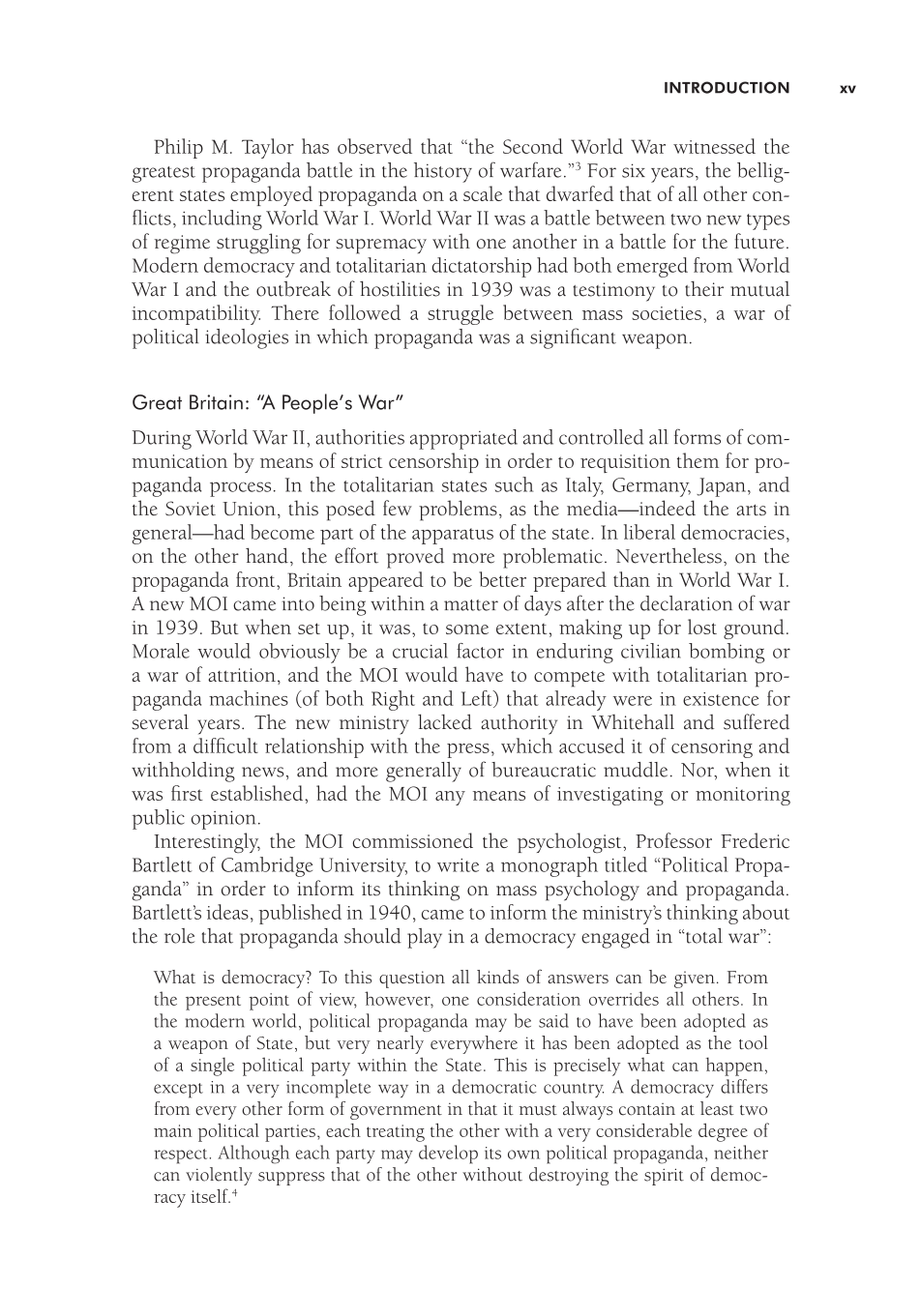Introduction xv
Philip M. Taylor has observed that “the Second World War witnessed the
greatest propaganda battle in the history of warfare.”3 For six years, the bellig-
erent states employed propaganda on a scale that dwarfed that of all other con-
flicts, including World War I. World War II was a battle between two new types
of regime struggling for supremacy with one another in a battle for the future.
Modern democracy and totalitarian dictatorship had both emerged from World
War I and the outbreak of hostilities in 1939 was a testimony to their mutual
incompatibility. There followed a struggle between mass societies, a war of
political ideologies in which propaganda was a significant weapon.
Great Britain: “A People’s War”
During World War II, authorities appropriated and controlled all forms of com-
munication by means of strict censorship in order to requisition them for pro-
paganda process. In the totalitarian states such as Italy, Germany, Japan, and
the Soviet Union, this posed few problems, as the media—indeed the arts in
general—had become part of the apparatus of the state. In liberal democracies,
on the other hand, the effort proved more problematic. Nevertheless, on the
propaganda front, Britain appeared to be better prepared than in World War I.
A new MOI came into being within a matter of days after the declaration of war
in 1939. But when set up, it was, to some extent, making up for lost ground.
Morale would obviously be a crucial factor in enduring civilian bombing or
a war of attrition, and the MOI would have to compete with totalitarian pro-
paganda machines (of both Right and Left) that already were in existence for
several years. The new ministry lacked authority in Whitehall and suffered
from a difficult relationship with the press, which accused it of censoring and
withholding news, and more generally of bureaucratic muddle. Nor, when it
was first established, had the MOI any means of investigating or monitoring
public opinion.
Interestingly, the MOI commissioned the psychologist, Professor Frederic
Bartlett of Cambridge University, to write a monograph titled “Political Propa-
ganda” in order to inform its thinking on mass psychology and propaganda.
Bartlett’s ideas, published in 1940, came to inform the ministry’s thinking about
the role that propaganda should play in a democracy engaged in “total war”:
What is democracy? To this question all kinds of answers can be given. From
the present point of view, however, one consideration overrides all others. In
the modern world, political propaganda may be said to have been adopted as
a weapon of State, but very nearly everywhere it has been adopted as the tool
of a single political party within the State. This is precisely what can happen,
except in a very incomplete way in a democratic country. A democracy differs
from every other form of government in that it must always contain at least two
main political parties, each treating the other with a very considerable degree of
respect. Although each party may develop its own political propaganda, neither
can violently suppress that of the other without destroying the spirit of democ-
racy itself.4






























































































































































































































